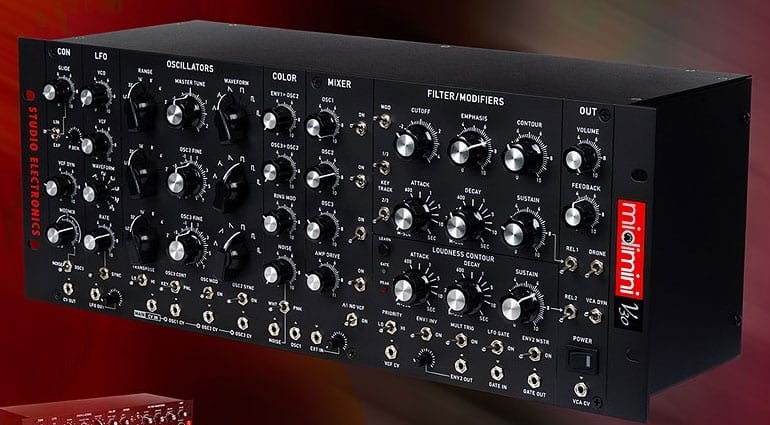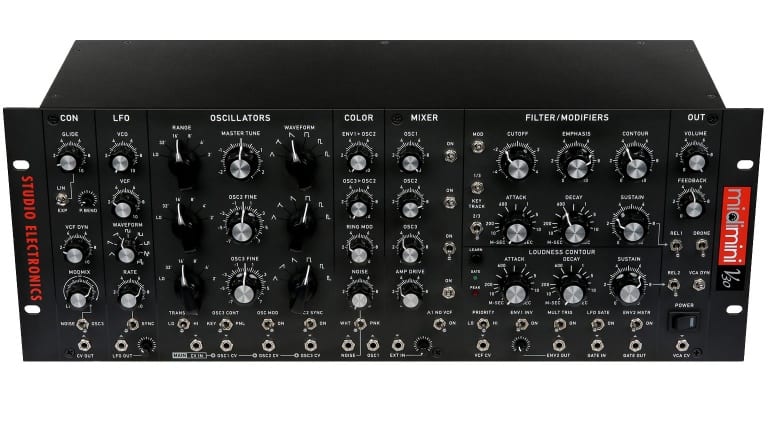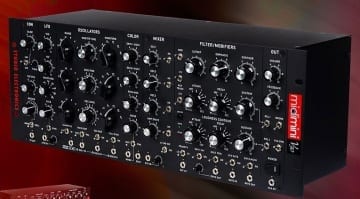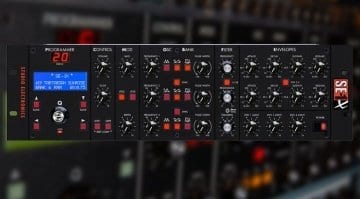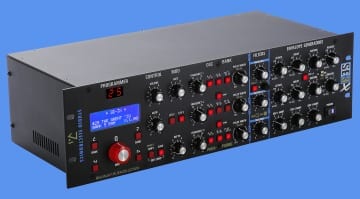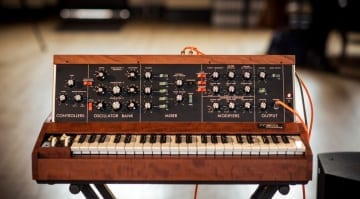Studio Electronics Midimini V30 updates their rack mountable Minimoog inspired monosynth
The Midimini came from the Studio Electronics Midimoog clone of the Minimoog Model D. Each one had a genuine Model D board inside and the idea was to give an authentic Minimoog sound but in a rack-mounted format. When they ran out of boards they designed and fabricated their own based on the Model D design and the Midimini was born with some obvious enhancements like…. MIDI. The Midimini V30 brings a lot of new features and a load more patch points to offer us a stunning take on the Minimoog sound for a new decade.
Midimini V30
First of all it looks fabulous. Gone are the thin white lines that mirrored the Minimoog and now the front panel gives the impression of a fully modular collection of modules. It retains the vintage style of the knobs but the rest of it feels very modern, clear and structured.
The board inside is built completely with through-hole components offering a purely analogue semi-modular monosynth in a rack-mount case. It has three oscillators with mixing, a classic 4-pole 24 dB/oct low pass ladder filter, two envelopes, a multi-waveform LFO and that familiar Moog layout.
You are currently viewing a placeholder content from YouTube. To access the actual content, click the button below. Please note that doing so will share data with third-party providers.
But there’s a lot of new stuff going on in here. They’ve brought in a handful of things from the Boomstar synth including Amp simulation and Overdrive, Ring Modulation and Noise and the MIDI learn capability. From the SE-02 they’ve ported in the LFO gate feature. They’ve added CV inputs to all three oscillators, revealed patch points for the noise, filter and envelopes. The LFO will now go up to audio rates and has many more shapes. There’s also an infinite drone mode borrowed from the Boomstar.
There are a load of other enhancements and adjustments that you can find here.
The Midimini V30 is available for $2999 which isn’t far off the price of the reissued (and now discontinued) Moog Minimoog Model D. What makes this boutique monosynth replication of the Model D worth ten times more than the Behringer Model D? Well for me it has to come down to the sound, the build and the value you place upon craftsmanship versus mass production. Only you can know how much that influences your purchasing decisions and if you’re seriously having to decide between spending 300 and 3000 pounds then this probably isn’t for you. What a lovely synth.
More information

 5,0 / 5,0 |
5,0 / 5,0 | 